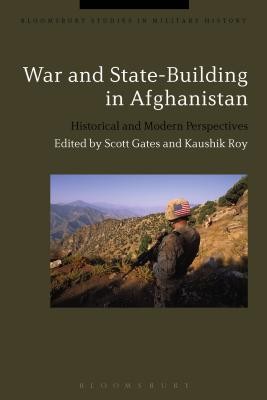
- We will send in 10–14 business days.
- Author: Kaushik Roy
- Publisher: Bloomsbury Publishing PLC
- Year: 2015
- Pages: 320
- ISBN-10: 1472572173
- ISBN-13: 9781472572172
- Format: 15.6 x 23.4 x 1.9 cm, kieti viršeliai
- Language: English
- SAVE -10% with code: EXTRA
Reviews
Description
The Mughals, British and Soviets all failed to subjugate Afghanistan, failures which offer valuable lessons for today. Taking a long historical perspective from 1520 to 2012, this volume examines the Mughal, British, Soviet and NATO efforts in Afghanistan, drawing on new archives and a synthesis of previous counter-insurgency experiences. Special emphasis is given to ecology, terrain and logistics to explain sub-conventional operations and state-building in Afghanistan.
War and State-Building in Modern Afghanistan provides an overall synthesis of British, Russian, American and NATO military activities in Afghanistan, which directly links past experiences to the current challenges. These timely essays are particularly relevant to contemporary debates about NATO's role in Afghanistan; do the war and state-building policies currently employed by NATO forces undercut or enhance a political solution?
The essays in this volume introduce new historical perspectives on this debate, and will prove illuminating reading for students and scholars interested in military history, the history of warfare, international relations and comparative politics.
EXTRA 10 % discount with code: EXTRA
The promotion ends in 22d.00:16:20
The discount code is valid when purchasing from 10 €. Discounts do not stack.
- Author: Kaushik Roy
- Publisher: Bloomsbury Publishing PLC
- Year: 2015
- Pages: 320
- ISBN-10: 1472572173
- ISBN-13: 9781472572172
- Format: 15.6 x 23.4 x 1.9 cm, kieti viršeliai
- Language: English English
The Mughals, British and Soviets all failed to subjugate Afghanistan, failures which offer valuable lessons for today. Taking a long historical perspective from 1520 to 2012, this volume examines the Mughal, British, Soviet and NATO efforts in Afghanistan, drawing on new archives and a synthesis of previous counter-insurgency experiences. Special emphasis is given to ecology, terrain and logistics to explain sub-conventional operations and state-building in Afghanistan.
War and State-Building in Modern Afghanistan provides an overall synthesis of British, Russian, American and NATO military activities in Afghanistan, which directly links past experiences to the current challenges. These timely essays are particularly relevant to contemporary debates about NATO's role in Afghanistan; do the war and state-building policies currently employed by NATO forces undercut or enhance a political solution?
The essays in this volume introduce new historical perspectives on this debate, and will prove illuminating reading for students and scholars interested in military history, the history of warfare, international relations and comparative politics.


Reviews